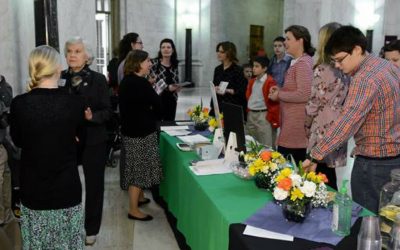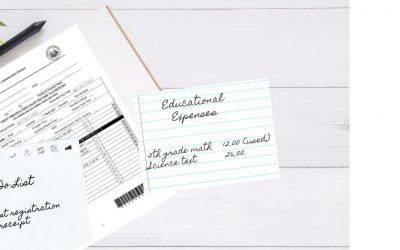And Why It Matters
A young West Virginia teen who died tragically in an emaciated state was said to have had an eating disorder.1 While absolutely heartbreaking, according to an article from the UMass Chan Medical School,2 eating disorders in teens more than doubled during the pandemic. “This is particularly concerning given that eating disorders are among the most deadly of all mental health diagnoses, and teens with eating disorders are at higher risk for suicide than the general population.” You’d think that Kyneddi’s death would bring attention to this horrible, life-threatening diagnosis. But it hasn’t.
From what information has been released, it seems very likely that Kynnedi was also a victim of the pandemic: first homeschooling from fear of it,3 then hibernating from fear of it4. It appears she was last in public when everyone was masking and staying six feet or more from everyone else. According to the National Institute of Health, doubling of eating disorders isn’t the only fallout for children in the wake of the pandemic.5 Kynnedi’s demise should drive us to identify other vulnerable children struggling in silence. Except it isn’t.
Instead, the attention of the governor’s office, the news media, and the legislators is on Kynnedi’s school status. At present, everyone is fixated on homeschool assessment submissions.
The purpose of a homeschool assessment is to determine how a homeschooler progressed in math, reading, language, science, and social studies.6 While no one is questioning how well Kynnedi did academically, the emphasis is on the fact that the 8th grade assessment was not submitted, which is a breach of homeschooling law. The strong implication is that following up on missed assessment submissions would somehow save Kynnedi and others like her. Well-intentioned folks speak of how no one wants such tragedies to be repeated – and then they do the most remarkable thing: they look to the agency charged with teaching math and English to students who attend school.
Ignoring the fact that investigating abuse and neglect is not the purpose of the school system, would officials following up on her missed assessment submission have made a difference for Kynnedi? Apparently not.
A visit was made to Kynnedi’s home the same year the assessment was due. It turns out that extended family members had already identified what turned out to be a life-threatening concern. They contacted police who subsequently made an in-person visit, interviewing both Kynnedi and her grandparents, according to the Chief of Staff of the WV State Police.7 This type of follow up is beyond the best scenario the school system could possibly hope for related to missed assessment submissions – yet such a “check up” visit was completed for Kynnedi. The officer even left with concerns – enough so that he made an in-person report to the agency he believed could help her. Things broke down from there.
Again, let’s be clear that the police visit was better than what is reasonable for assessment follow-up. But it ultimately made no difference.
When contacts and reports are both made, but to no avail, then arguing for more contacts and more reports doesn’t seem the right tribute to either Kynnedi or Raylee Browning, another tragic death victim for whom multiple CPS reports had been made. Instead, we need to find out what is broken within the agency that is tasked with abuse and neglect cases. And that agency is not the school system.
Certainly CPS has an overload of case work. State Superintendent Michele Blatt has rightly pointed out that they already have 6000 children in foster care alone.8 Over three years ago, CHEWV fairly identified how Child Protective Service’s hands are tied9 and argued for intervention on their behalf. We’ve tried to bring attention to the issues that seem so clear!
If the public and legislators actually want to make a difference for future children like Raylee and Kynnedi, we must start by making CPS equal to its mission, fully recognizing the scope of the problems they investigate and oversee. Further, we owe it to Kynnedi to understand why she avoided social situations and why she struggled emotionally and physically – to the point of death.
Why does it matter?
- The school system is not charged with keeping children safe in their homes. When we look to them to do that, we’re on a dangerous slippery slope!
- CPS is the correct agency to investigate abuse or neglect. CPS had been contacted on behalf of both Raylee and Kynnedi. We now know that there was life-threatening abuse/neglect for both. What broke down? We still don’t know.
- When we look in the wrong direction in order to fix a problem, we end up hurting those who are not responsible.
- When we ignore real issues, like eating disorders or emotional fallout in children from pandemics, we actually are not serving future children like Kynnedi. We’re doing quite the opposite.
____________________________
1 According to news articles like https://www.wowktv.com/news/west-virginia/boone-county-wv/dohs-releases-statement-on-the-death-of-14-year-old-kyneddi-miller/, Kynnedi suffered from an eating disorder. This seems likely given that she died in an emaciated state and her caregivers are charged with neglect, not abuse. Details will not be released due to the criminal case.
2 https://www.umassmed.edu/news-archives/2023/03/eating-disorders-in-teens-more-than-doubled-during-pandemic/
3 An email to the school system from Ms. Miller at the time of her NOI indicated that they were homeschooling to keep their family safe from Covid.
4 As reported by state police during their 2023 visit with Kynnedi and her caregivers.
5 https://www.ncbi.nim.nih.gov/pmc/articles/PMC10242215
6 https://code.wlegislature.gov/18-8-1/
7 https://www.youtube.com/live/2dOjT22bZGM?feature=shared
8 https://westvirginiawatch.com/2024/06/26/only-37-of-wv-homeschool-families-tunred-in-required-assessments-state-education-dept-says/
9 https://chewv.org/a-response-to-raylees-law/





Recent Comments